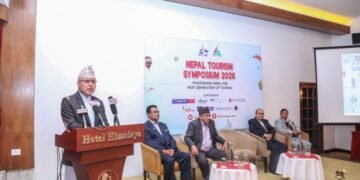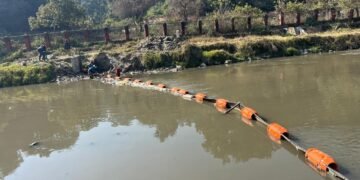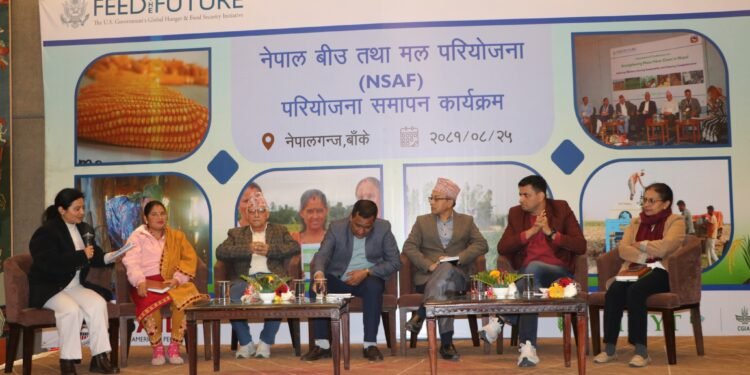Kathmandu: After eight years of remarkable achievements, the USAID Nepal Seed and Fertilizer Activity (NSAF), a flagship project under the U.S. Government’s Feed the Future initiative, concluded its transformative journey.
Led by the International Maize and Wheat Improvement Center (CIMMYT), the program has redefined agriculture in Nepal, empowering farmers, improving productivity, and championing sustainable practices.
Since its launch in 2016, NSAF has directly supported over 151,000 farming households across 26 districts. It introduced modern farming methods and better management practices, revitalizing 385,000 hectares of farmland.
The initiative brought unprecedented crop yield gains, including a 21% increase in rice production, a 133% surge in maize, and significant improvements in lentils, cauliflower, tomatoes, and onions. Beyond yields, farmers experienced a 163% growth in incomes, dramatically enhancing their livelihoods.
A standout feature of the program was its focus on inclusivity, empowering women by increasing their access to productive resources by 116%. This commitment to equity and innovation has left a lasting impact on Nepal’s agricultural sector, fostering resilience and sustainability.
The success of the NSAF initiative underscores the potential of collaborative efforts between governments, international organizations, and local communities. As the program concludes, USAID and its partners celebrate the collective achievements of farmers and stakeholders who have sown the seeds of a brighter future for Nepal’s agriculture.




















